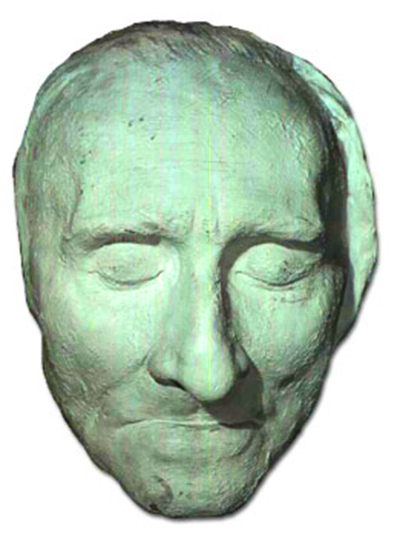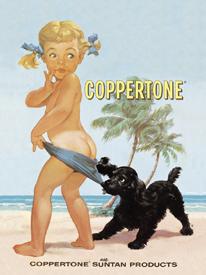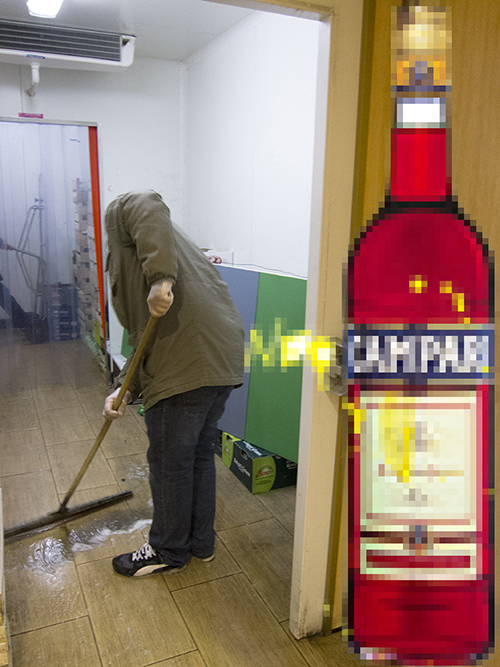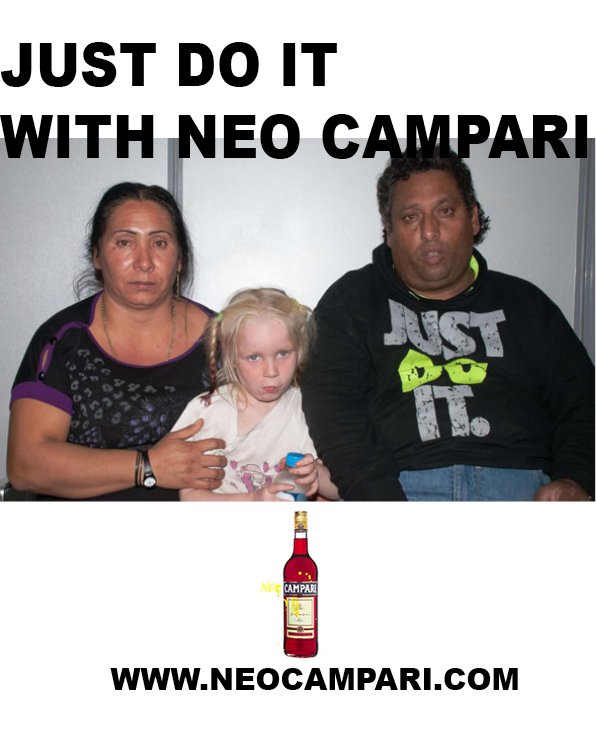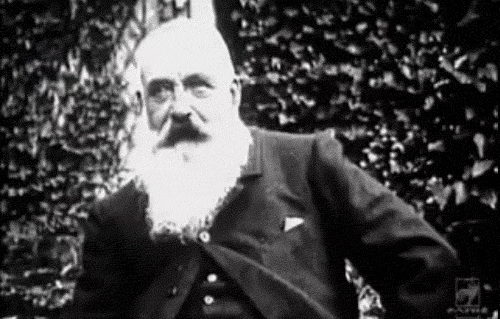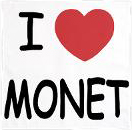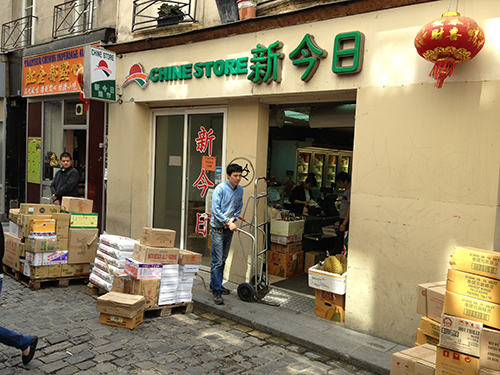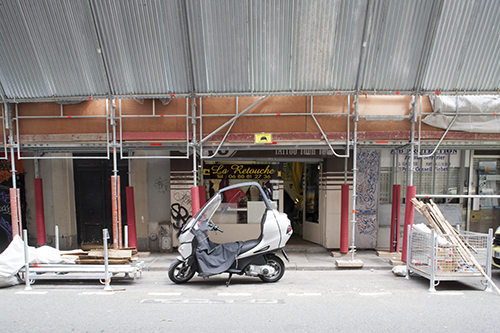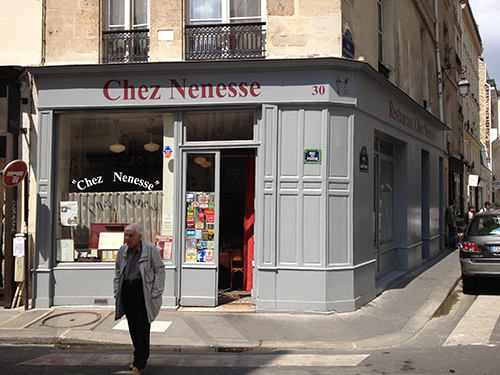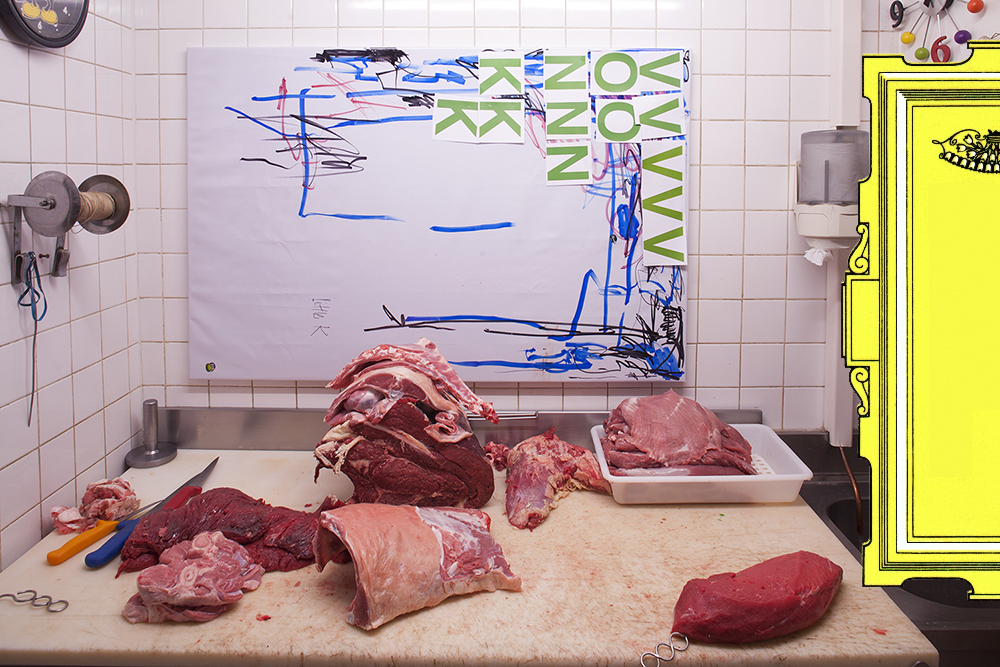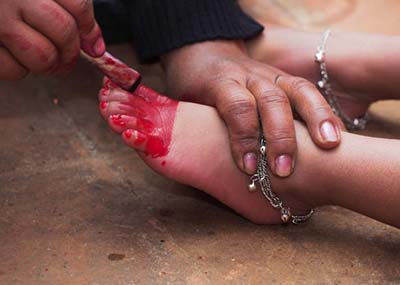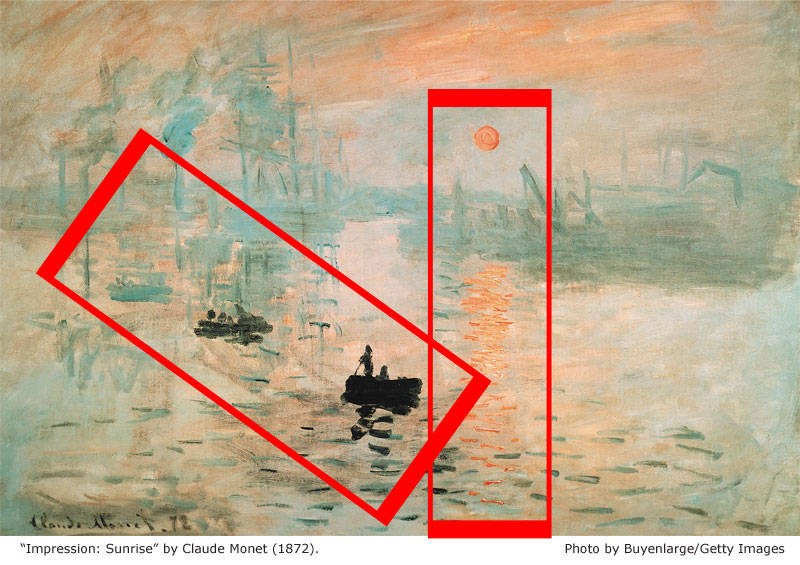| ŪBER-PARKING |
|
|
ŪBER PARKING |
ŪBER PARKING MAY 2014 |
ŪBER PARKING |
| THE INAUGURATION OF ŪBER-PARKING FRIDAY 18 MARCH 10:00 PARIS PART 1 - DU GEHST - CEREMONIAL SYSTEM (W-A-R-T) (banality please) by VICTOR BOULLET INSTALLATION TRADITIONAL STYLE PART 2 - W A R T W A R T W A R T W A R T INSTALLATION VIEW WESTERN STYLE TEXT WILL COME VERY SOON!  |
 PLEASE VISIT THE NEO CAMPARI ARCHIVE BY CLICKING THIS LINK PLEASE VISIT THE NEO CAMPARI ARCHIVE BY CLICKING THIS LINK |
PPRREESS BONUS MATERIAL!
PPRREESS BONUS MATERIAL!
PPRREESS BONUS MATERIAL!
PPRREESS BONUS MATERIAL!
PPRREESS BONUS MATERIAL!
PPRREESS BONUS MATERIAL!
PPRREESS BONUS MATERIAL!
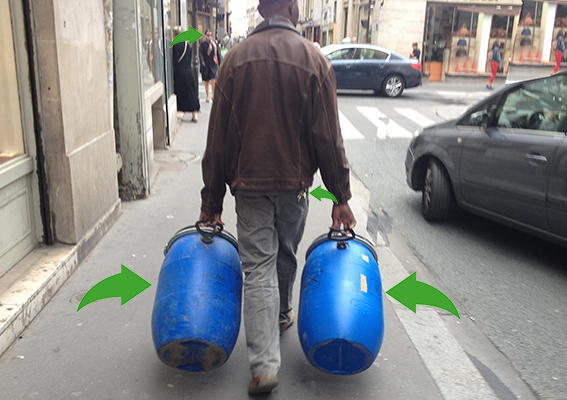

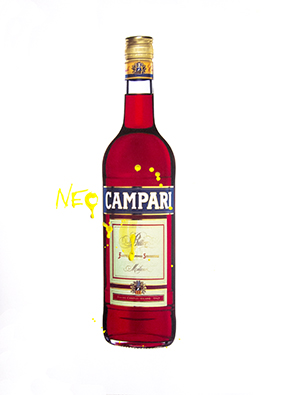
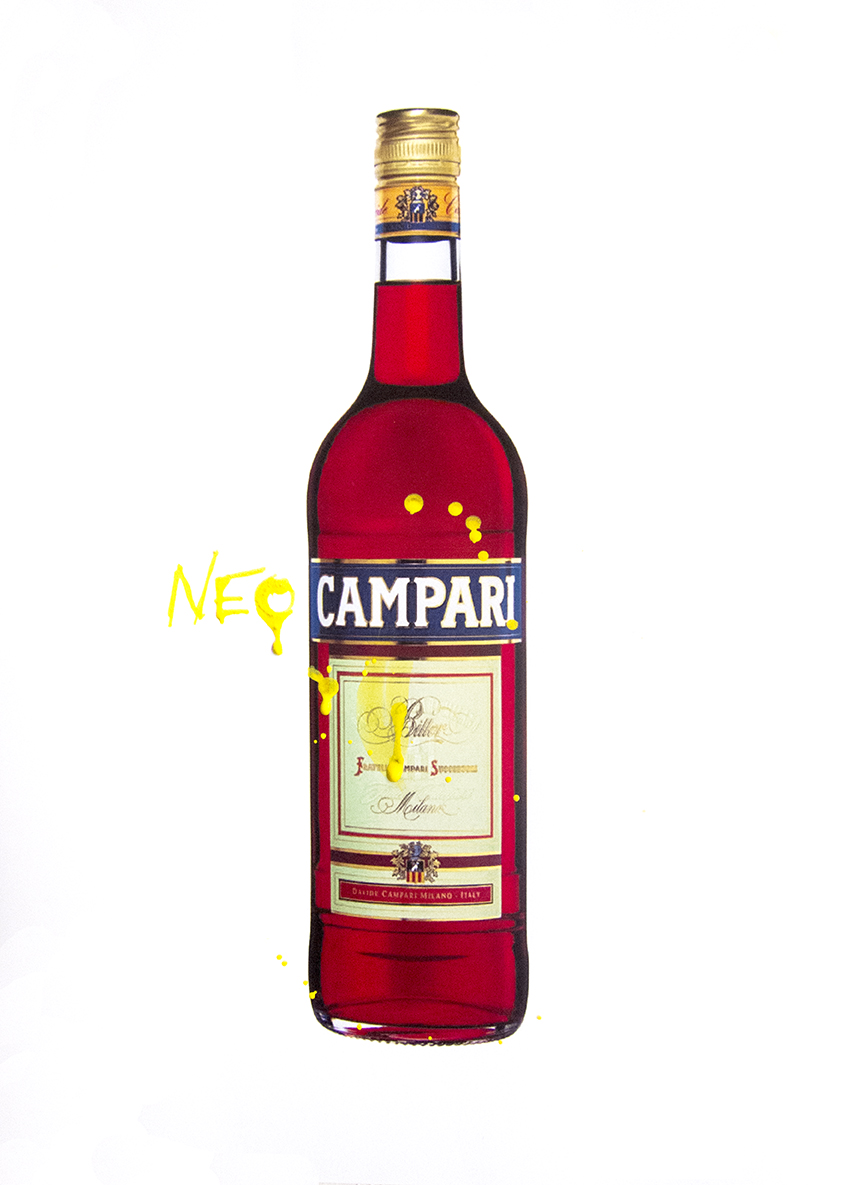
PRIVATE ROOM
The sun was shining finally and Mona’s shoes had arrived. She had first spotted them in a store but they were exceptionally expensive, so she had, even if she didn’t have to worry about money, been hesitant about investing. A few days later she had dropped by the same store and tried them on again. It was a kind of magnetism that brought her back, a feeling of being almost predestined for this particular pair of leather boots. Mona had these sorts of feelings vis-à-vis objects quite frequently, as if they were hers by virtue of some paranormal connection, and this feeling of entitlement made her less ready to spend money acquiring the object in question, since that would mean that she was paying for something that was already hers. Of course, stealing was out of the question. She tried bargaining with the seller - a rather expressionless elderly gentleman, pear-shaped, his mouth sloped down in a perpetual, haughty sort of pout - but to no avail. He simply shook his head and mumbled the price. Mona was holding the boots in her hand. She wasn’t sure what to do. She didn’t feel like leaving without the boots, neither was she willing to pay what the seller demanded. Her options were spent it seemed. The leather felt nice to the touch. The touch of high quality leather was one of Mona’s favorite sensations. She stood there for a few minutes running her fingertips over the smooth surface of the boots. The leather was soft and exquisite. She held one of them up to the light and inspected it closely. The color was consistent, also across the seams and needle marks, clearly aniline-dyed. She had a hard time tearing herself loose.
But she was not going to put out for these boots. She felt embarrassed about making money an issue, but paying 1000£ would spoil the experience of owning them. It was vital that she didn’t soil the purchase by paying an unseemly high price. Mona was the only customer in the store and she could feel the stare of the pouting proprietor burning a hole in her neck. She replaced them on the shelf and told him that she would be back for them later and asked him if he could kindly hold them for her till then? -Bien sur, Madame, he said. She left. When she came home she went online and found the same boots for half the price at a retailer in England. They didn’t ship to France, but Mona arranged so that they would be sent to Lionel’s aunt who lived in London, who would then post them to her. It was an awkward route and it would probably take at least two weeks before she got them, but Mona felt she had won. And even more so now as she carefully opened the box and unwrapped the delicate footwear.
—-
Bach’s sonata #1 in G minor for solo violin, played by Henryk Szering, was issuing at maximum volume from the integrated speakers of Victor Boullet’s laptop. Buying surveillance equipment online proved harder than he had imagined. Actually, finding the equipment was not the problem. The challenge was deciding which cameras to buy and where to buy them. Victor wanted the small pinhole cameras that he could drill into the ceiling, only he was looking to get them cheap. He considered buying them from spyassociates.com. The tag to their Mini Wireless Color Surveillance Cameras read: “If you want to monitor the activities of your target whether it is your children, your employees or your new babysitter, you can rely on our top-notch Wireless Camera kit”. They appeared serious, though a little overpriced, obviously catering to a paranoid segment who wasn’t short on cash.
After some time browsing for forum posts tagged with “spy camera”, where mostly men who suspected their spouses of cheating on them was looking for advice, Victor came across a user who had posted his e-mail address in response to a man wondering, “Where he could find affordable spy cameras”. The post was a over a year old, but Victor figured it was wort a shot and sent an e-mail explaining where he had come across the address and asking if the person had some wireless pinhole cameras to sell.
—-
Jason Hwang had received his preordered copy of Peter Osborne’s new book “Anywhere or not at all” from Amazon over a month ago, but he had not had a chance to read it yet. It felt vital that he read it soon. It appeared Osborne had successfully paved new ground, art-theoretically speaking, with this volume on the “philosophy of contemporary art”, a field in which Hwang took pride in being fairly up to date. This time however, he was lagging. He just couldn’t find the energy to pick up the book. It wasn’t even particularly thick, and Osborne’s prose was lucid, or, as lucid as was possible when trying to add to the complex and unsurveyable catalog of contemporary art writing. But the thought of the work that was nonetheless required to get through 200 pages of philosophical writing, filled Jason with a premonition of fatigue. The kinds of attempts as was clearly the object of Osborne here, to provide a sound and systematically argued, conceptual basis for thinking about and interpreting the type of art works that Jason trafficked in, both as an artist and as a manager of the independent exhibition space Shanaynay, situated in the 20th arrondissement of Paris, always replenished Jason’s belief in the meaning of human existence (his own, at least, enmeshed as it was in concerns intrinsic to contemporary art). And right now he was in dire need of some replenishment of existential meaning, still he had only gotten through the foreword (and he wasn’t even sure if he had actually read it or just browsed). Was it all the hours at that butcher in Belleville, Butcherie Elido, that had taken such a toll on his stamina? Surely, spending long days hauling butchered pork was making some kind of impression on him. The idea had initially seemed good. He wasn’t selling his artwork - he was hardly exhibiting it. Shanaynay, despite its renown and frequent mention on Contemporary Art Daily, was not really a factor in fiscal terms, as it turned little to no profit. Fashion photography had for a period been a fairly steady source of income, but now the jobs in that department had become scarce. Invitations to curate a show or give a presentation that came his way on occasion, didn’t pay much either. The most lucrative job thus far had been a trip to Oslo on an invitation from the Astrup Fearnley Museum to talk about the French art scene in conjunction with a series of presentations of the art scenes of different European cities, leading up to some big survey exhibition of contemporary European art. A rather prestigious invitation as far as Jason could gather. Jason took it to be indicative of his growing importance as a factor in the art circuit of Paris - an intuition that made it seem all the more ironic that he was unable to sustain himself on art-related work alone, even though it consumed near every moment of his waking life. So, facing eviction, Jason - whose only other option if he was thrown out of his apartment was to move back in with a friend who had housed him before on the patronizing condition that he serve as his private chef and housekeeper - saw no other option than to find some temporary, payed engagement that would provide the money he needed to pay rent. The first “help needed” sign he had come across was at a butcher in Belleville that specialized in swine. Jason had always had a predilection for the taste of swine meat and had decided, experiencing a sudden sensation of providence, that this was the job for him. He opened the door confidently and stepped in. Five minutes later he found himself in an interview with the shop manager, lying about having previous experience, figuring the job would be simple enough to learn so he wouldn’t be exposed as a liar. He was hired on the spot since his predecessor was recently deceased and the shop was in desperate need to find someone to take his place. Jason didn’t make any fuzz about the below average wage either, as he didn’t know what one could expect to earn at a job like this. He was used to work for next to nothing and the prospect of a steady income, however meager, seemed almost too good to be true. Jason agreed to show up for work early the next day. The details of his contract had not been a topic during the interview, and inexperienced as he was with actual job interviews Jason had never thought to ask. He had also not thought about how taking the job possibly meant that he would be expected to show up for work every day.
The work at Butcherie Elido had quickly worn him out. As a result his energy was always low, and he had began to think a lot about sleep when he was having conversations with other people. He would just nod and smile and sip beer and try as best he could not to slouch. Today, Jason had gone directly back to bed after eating breakfast and spent two hours watching videos on the website of a children’s choir that called themselves Ps22. They were well known back in the States, having performed on Oprah - something that would have made the old Jason skeptical, but now it just felt like a timely and moving recognition of the transcendent value of their music. And wasn’t his skepticism towards commercial television a tad programmatic? Several times while listening to the children sing Jason burst out in tears at how insanely beautiful their unselfconscious performance was. From where came all this dammed up emotion? Afterwards he had felt depleted and somewhat pathetic and in an attempt to redeem his intellectual ego he had picked up Osborne’s book, but his usually ardent focus began to waver after only a half page. He leaned back and closed his eyes. His muscles were aching. Behind his lids he saw an endless procession of pigs, pigs, pigs, racks on racks of pig cuts, entrails, heads, their prodding snouts. Girls, fashion shoots, children singing RnB covers, articles he had read online while eating his croissant, about James Gandolfini’s recent death, Joseph Beuys’ Nazi-connections, this woman from a sect called The Breatharians who had vowed that she would live six months on a diet consisting of nothing but light, air and water but had recently had to give up and start eating again to avoid organ failure after a mere six weeks abstinence; everything except Osborne’s argument flickered across his brain.
Jason held Osborne in high esteem as a philosopher, but was a cultural practice that required such an elaborate explanation really worth the effort? Nothing wrong with a little theoretical ambition, but did contemporary art offer any form of meaningful experience if you didn’t intend on getting seriously entrenched in its ontological conundrums? Was it at all approachable as something immediate and present, something that wasn’t just retrospectively constructed when you sat down to write about it? Jason couldn’t remember the last time he had encountered a work of art that wasn’t primarily mind-boggling and strenuous to relate to. Though perhaps the problem was more to do with his own approach than some complexity inherent in the work. Had his penchant for art theory sealed him off from any real, emotive encounter with art? He did after all know plenty of people whose lives were filled with art who didn’t approach these objects as abstractly as he did. Artists who were only concerned with the intrinsic patterns of their own methodology, not caring much what critics and theoreticians had to say about their work. Or collectors who simply saw art works as statistical facts, as functions of an artist’s position in the market, like stocks. Whose only sources of information were inane, single-column critiques and gossip. It was all about owning the right artist at the right time. At least to them, however superficial and speculative their engagement was, art represented something tangible, a source of revenue, the accruement of capital, either fiscal or cultural. They effortlessly presented themselves as patrons of the art with their dinner parties in suavely decorated dining rooms. No one cared that their engagement was shallow, that their investments were instrumental at best - or down right exploitative at worst. They got off, they were comfortable, they knew the limits of what art had to offer, and used it to enhance their comfortable life-styles. This group also included a large portion of the gallerists and museum directors that he had met. Even if they pretended to be passionate about art the constant demand to turn this affiliation into profit made it impossible for them to remain sincere. But was he?
Jason wasn’t even able to posit these simple questions to himself without resorting to vague and abstract terms like “ontology”. Was that word even applicable to what he was trying to articulate? His internal dialog was permeated (permeated?) with a high strung glossary that instead of bringing clarity to his thoughts seemed to enmesh them even further in an estranging, cerebral discourse. Images of pig’s viscera kept flashing before him. He had a fleeting vision of the entire interior of Shanaynay clothed in pig’s intestines. Entrails sloping from the ceiling and walls, crisscrossing the space, visitor’s feet sloshing through an ankle-high pool of blood.
Jason realized that there was an almost religious aspect to his dedication to the hermeneutic intricacies of art, even if he too, on some level, also had an exploitative relationship to it, although one more deeply involved than the affluent decor-shoppers that he frowned upon. Only he wasn’t entirely sure what it was that art gave him, what it was the exchange consisted in exactly. If he had given his life to art without monetary compensation, what then was it that justified his sacrifice? Was it purely a fulfillment of the desire to be affiliated with art’s cool – the intensified experience of self that came along with its deregulated, anarchic production sites? To be on the list of people who were invited to dinners by the same collectors and gallerists that he saw it essential to differentiate himself from ideologically, aesthetically, politically, existentially (but not socially, it appeared)?
He had sort of touched on this difference in his presentation in Oslo, albeit in strictly functional terms, where he had talked about the increasing pace of contemporary art and the pressure therefore put on institutions to be adaptable, and how this adaptability was a prerogative of the independent artist and curator run spaces, like his own Shanaynay, that weren’t tied to long term programming, and who could operate at whim. They could seize on what was “young and fresh”. A choice of words that he afterwards had regretted. It sounded like very hollow and marketable qualities, which was precisely what he wanted to avoid propagating.
Speaking of dinner parties, he was attending one the very same night, in conjunction with a parallel opening of two solo exhibitions at Yvon Lambert. The artist’s names were Nick van Woert and Diogo Pimentão. The dinner was hosted by one of the gallery’s collectors, name of Lionel something. Jason clicked on another video. The choir sang: «Please come to Boston in the spring time..»
—-
Getting another detective assigned to Joseph Tang’s case to help her out had proven hopeless. Isabelle Litty had even been patronized when she approached the commissioner with her request. He simply laughed in her face when she told him about the Jacques Heaulme identity theft and how it looked like M. Tang had been set up by an impostor on the same day that he was attacked. It had made Litty feel like an overly eager child who didn’t know the rules of the game. The commissioner reminded her that it was after all not technically a murder case yet, and that until he officially had a murder of an American citizen on his hands and the American ambassador breathing down his neck he preferred to procrastinate rather than pour valuable resources into a case that they would never solve. He told Litty to feel free to waste her time going after this e-mail-lead, but that by the end of the week, if she hadn’t dug up anything worthwhile he would be taking taking her off the case, and see to it that it was thoroughly closed and shelved.
Litty, who really felt she was onto something with the faux-Heaulme lead, decided to try to find out who was listed as the owner of mayreview.com. A simple whois-search gave her depressing news however. It turned out that the domain was hosted by a company operating out of Malaysia, called anonymousspeach.com, who specialized in catering to people who didn’t want investigators to be able to track their domains. Malaysia being outside EU jurisdiction the company were under no legal obligation to give out information about their clients. Whoever had sent the e-mails had also been savvy enough to use a proxy to mask his or her ip-address. Litty’s heart sank.
—-
Now Mona had to be careful not to walk past the shoe store where she had first discovered the boots. For some neurotic reason she felt that it would be devastating if the pouting manager saw her in the boots that she had asked him to hold for her, but had then gone and bought online instead. It was absurd, considering she had gotten them for half of his preposterous price. She hadn’t even had to pay postage, since Lionel’s aunt had insisted on treating her to that. Still Mona took great pains to avoid meeting him, crossing the street whenever she found herself nearing his shop, or taking awkward detours to avoid the street where his shop was all together.
—-
LIONEL’S PARTY
The exhibition of the Portuguese artist, Diogo Pimentão, who was opening at Yvonne Lambert, Mona found to be a drag and she wasn’t afraid to voice her uneducated opinion to the other guests, even after Lionel had left the conversation, clearly thinking she was making a fool of herself. Mona was left talking to a young American artist whose name eluded her. Or was he a curator? The two seemed interchangeable. He was very soft-spoken and eloquent, and he was patiently explaining to her why Pimentão’s graphite monochromes were more than simple iterations of abstract painting’s long worn tropes. Despite its persuasive qualities, Mona found his voice a tad fawning. And it was something about his long hair too, how it was a bit too artfully composed around his hansom, Asian features. It gave him an aristocratic look. He could be a character from one of those vampire shows that she saw billboards for everywhere. She could easily picture him in stockings up above his knees, a fitted jacket and a cane with a hidden blade. Mona liked his slender hands though. His slightly evasive handshake had seemed so attentive, so adjusted to the hand he was shaking, hers. She didn’t want to let go and had for a moment fantasized about guiding him up under her dress instead, to see how his elegant fingers adjusted to her nether parts. She had the same dirty thoughts regarding his mouth. His words were like carefully poised decorations, shaped on his tongue and then gently kissed to the air from his sharp lips. He seemed to be very in control. She had stopped paying attention to what he was actually saying. Her eyes drifted. She saw Victor looking their way. He had been hawking over her all night. She had only spoken to him twice since the incident at the hotel a couple of months back. He wasn’t very sociable these days, now that he had quit drinking. His company had become a drag. Constantly pissed off at someone, taking everything that happened in the world that he didn’t approve of as a personal insult. She sensed that Lionel, who was acting unusually morose tonight, had a suspicion about her liaisons with Victor. It had probably not been a very good idea to invite him, but what could she do? He was after all an old friend. And Norwegians were far between here in Paris.
—-
Jason noticed that Saâdane Afif tipped over a glass of red wine with his elbow and then pretend it didn’t happen. One of the servants, a small, Indonesian girl, scuttled over, got down on her knees and began picking up the shards. Afif was very drunk and moved about the place as if he had a severe stomach ache.
—-
Lionel’s two Indonesian au pairs had been confused about what their role would be during dinner. Mona had insisted that they hire some professional help, but Lionel said that that would be absurd considering they already had two live-in servants, whose very raison was to step up at functions like this. Mona said to Lionel that the two girls were completely incompetent and that they would be an embarrassment. “Rubbish!” Lionel said. “They will do splendidly!” He smiled and left.
Mona had then tried to instruct the two girls - whose names, Intan and Kemala, she had now learned - about what would be their chores for the evening. The way they giggled and kept throwing each other glances like two little school girls that were being berated for some mischief by a stern teacher made Mona furious. The seance had ended, after several unsuccessful attempts at getting their attention, with Mona slapping her hand against Lionel’s polished stone counter top with all her might. It didn’t produce as much sound as she had intended it to, but it had still hurt like hell. Mona’s face turned red. Intan and Kemala froze. For a second Mona fantasized about bestowing some kind of physical punishment on them. Mona’s lips were perched in an angry grimace. She didn’t say anything but only kept breathing through her nose. Her hand rested on the spot were she had let it fall, the flesh of her palm still aching. Intan and Kemala exchanged looks. Lionel never told them to do anything. Mona suspected that he just kept them around as some kind of exotic pets. At least they were working now, bringing plates with food to and fro the kitchen, making sure the guests had wine in their glasses.
Mona’s attention, which had wavered for a while, returned to her current conversation with the artist, or curator, whose name she couldn’t recall, who seemed to be waiting for her response to something he had just said. Mona had no idea what it was that he had said. She hadn’t been paying attention, so she smiled and nodded. The nameless seemed incapable of saying something that it was possible to disagree with, he was very careful with where he placed his opinion, he probably gave his words a lot of thought, more than Mona did hers, so there was no point in saying something like, “No, I am not sure I agree with you there…”, as that would simply leave her in want of an argument that was out of her reach. She couldn’t go wrong if she just indulged his view of things. She smiled some more, and said, “yes, indeed”. He looked away. Her response had probably been a little off target and made him realize that she hadn’t been paying attention to what he was saying at all. What did she care. She grabbed his arm and said, “Come, there’s someone who I would like you to meet”, and walked him over to a group of people most of whom Jason already knew, but pretended not to, and listlessly shook each of their hands in turn, mumbling his name. Everyone played along. Mona snuck off, and went up stairs to visit the bathroom adjacent to their bedroom on the second floor. In the hall she met Victor. He stopped and smiled and was about to say something but Mona didn’t feel like being caught talking to Victor here, outside the toilet, in case Lionel walked up on them. So Mona just brushed impolitely past Victor and disappeared into the toilet.
—-
On his way home after the party Jason missed America. He thought about his fellow expatriot and friend, Joseph Tang, who’d had a gallery here in Paris and then for no reason been savagely beaten in one of the suburbs. Joseph was now in a coma. Jason thought he heard some footsteps. He walked faster. He looked over his shoulder, the street was empty. Jason felt he had had a little too much to drink at Lionel’s dinner. He regretted having declined the cocain he was offered by one of Lionel’s friends - a Christopher Sharp, an art dealer from San Francisco who had talked non stop about some development scheme in Mexico that sounded like something out of the TV-show Arrested Development, occasionally interrupting this Mexican narrative to, out of nowhere, expound on the work of Michel Foucault, as if he were two different persons, a venture capitalist and a professor of philosophy, speaking at the same time, to themselves, making sure the air was so dense with their own voice that Jason never got a word in. Not that he would have known what to say had he been given a chance to speak. It had been the most confusing conversation (or rather monolog) that Jason had ever experienced, which was why he had declined the cocain, as it gave him an opportunity to escape as Sharp left for the toilet.
—-
It was already two o’clock in the afternoon. Jason’s phone rang, or vibrated - it was on soundless. It was Romain, his partner at Shanaynay. Jason let it buzz for a while, then he declined the call. He lay completely still for five minutes with his hands folded on his chest. Then the phone rang again. Jason watched his vibrating phone move around on his night stand. It reminded him of a beetle whose legs he had pulled out with a a pair of tweezers once when he was a kid, and left to scuttle helplessly around on a patch of chapped tarmac in his parent’s drive-way while he sat watching, like an eight year old reincarnation of Joseph Mengele. The beetle had been moving for what seemed like an eternity. When it stopped moving he had crushed it with the heel of his sneaker and hadn’t felt bad about it afterwards. It had been no different than watching a broken toy wearing out its batteries. He was this toy, Jason thought, watching himself wear his batteries out. His phone stopped ringing
written by Stian Gabrielsen
| NEO CAMPARI |
|
NEO CAMPARI ARCHIVE NEWS
|
 |
 |
 |
 |
 |
ALSO, OUR BLOG http://theneocampariautomaticartpressrelease.blogspot.com |
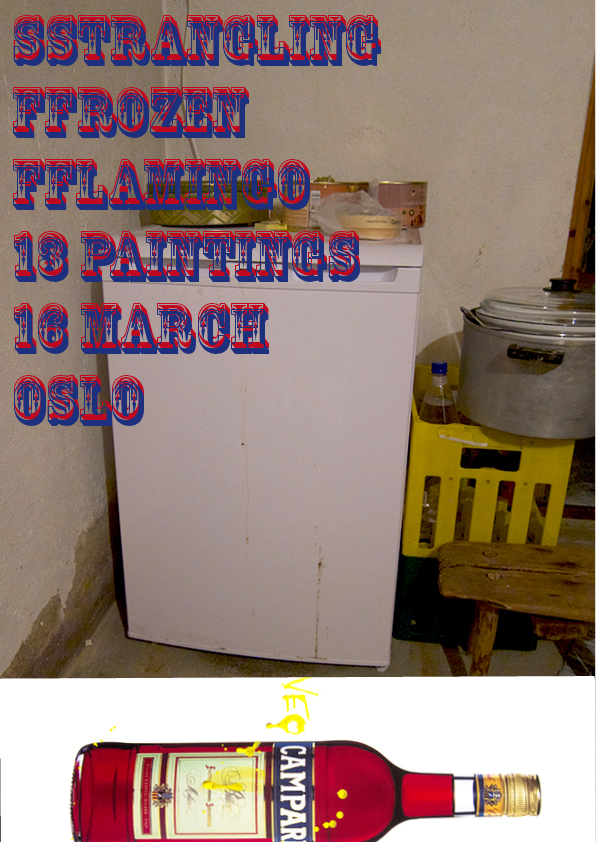 |
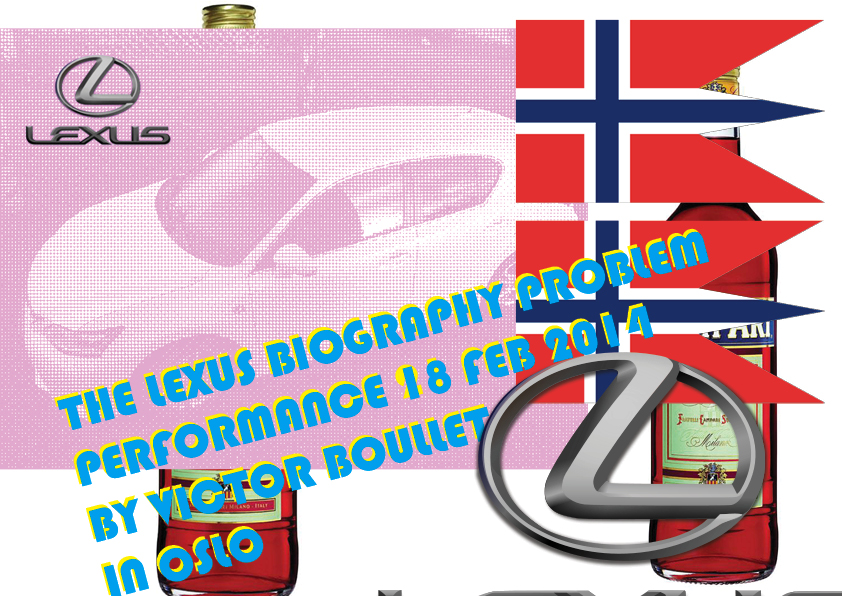 |
NEXT NEO CAMPARI
|
CHILD PRODIGY X-MAS BONUS PACKAGES ( |
|
NEXT NEO CAMPARI
|
NEXT NEO CAMPARI "Positively every day” With Carrefour, I'm positive (Avec Carrefour, je positive) Energy Wise Positive is back (Le positif est de retour) Positively every day (Les prix bas... La confiance en plus) Hypermarkets "Choice and quality for everyone" Hypermarkets Hypermarkets "Ninguém faz melhor que o primeiro" Hypermarkets "Carrefour, chévere!” Hypermarkets "Life, the way I want it” Hypermarkets "Untuk hidup yang lebih baik" Hypermarkets "Pentru o viaţă mai bună" Supermarkets "The prices people want, close to home" "Grocery products at low, low prices" Convenience Stores "Just what you need, right next door" Cash & Carry "Proximity and accessibility for catering professionals" Hypermarkets "Καθε μέρα για σένα" Hypermarkets "Pozytywnie każdego dnia"
|
NEO CAMPARI
|
| PAKISTAN |
HEY ART - coming neXt summer 2014 (always late) |
Monday 24 – Friday 28 June, 2013 |
The new instalment in the literary feuilleton “Mona”! And a wonderful |
| Private View can be found online |
|
Chez Nenesse
|
Chine Store (Chinese Supermarket)
|
Bouchta the Tailor / La Retouche
|
Les Tissus Francais
|
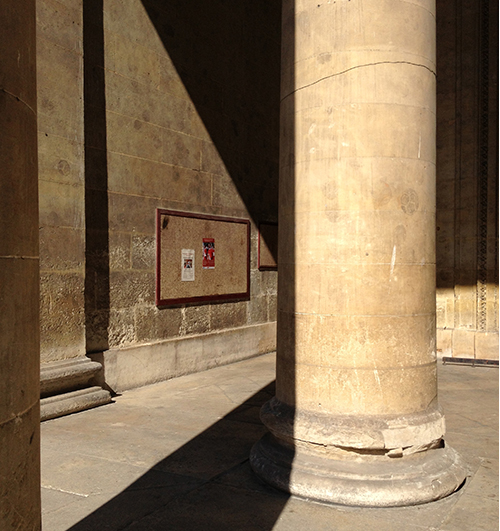 |
Church of Saint-Denys of the Holy Sacrament
|
| TENNIS |
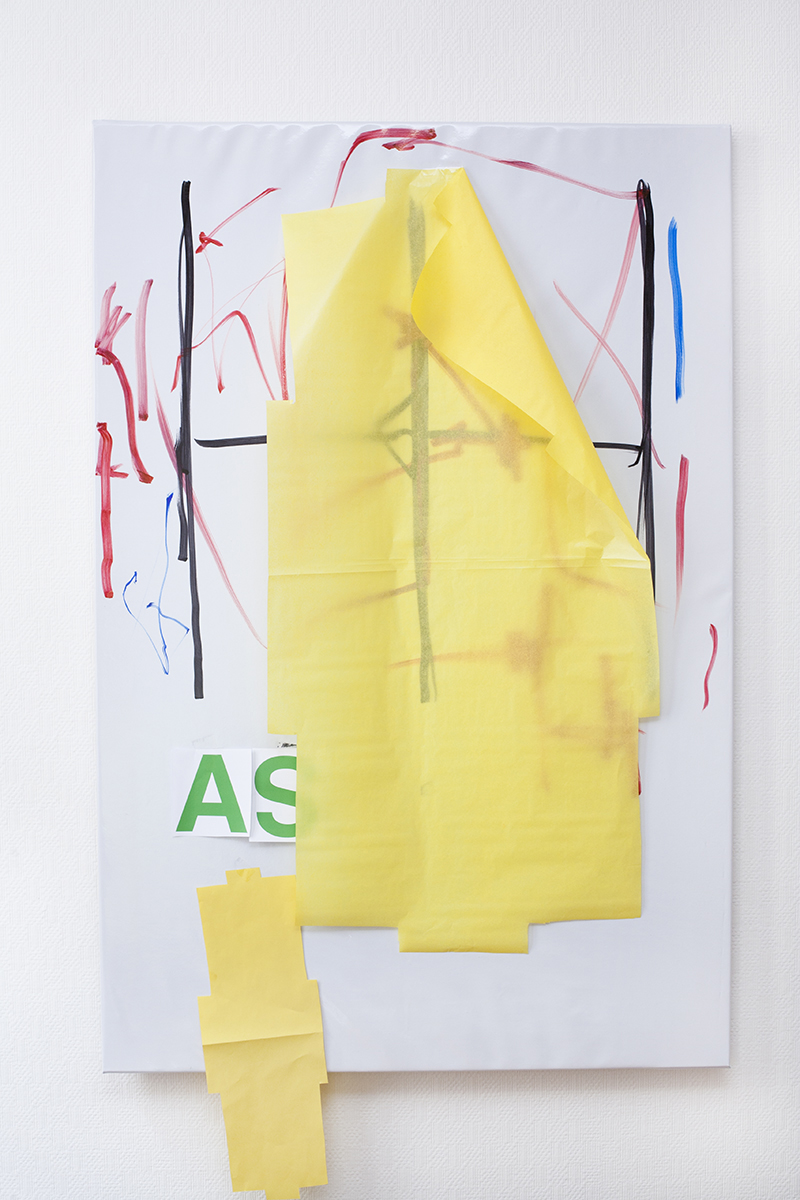 |
| STOMACH |
Das Poppycock Talent Monday 22 April - Saturday 27 April INSTALLATION VIEW New paintings by Victor Boullet and a new installment in the literary feuilleton "Mona"! --- written by
Stian Gabrielsen
|
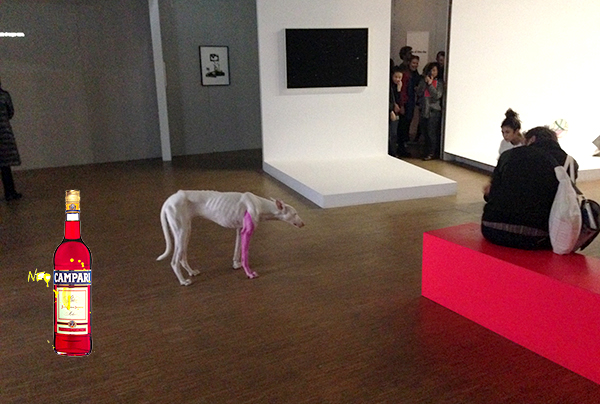 |
 NEO CAMPARI There was a certain accumulative aspect to Victor’s art. It seemed to combine across such a vivid expanse of different things, media and subjects that Mona had a hard time seeing it as something unified at all. It refused to be gathered under a stylistics like, for example, the work of say Picasso (whose paintings Mona also found to be of questionable artistic merit, although she did own one of his prints, representing a bull that looked like a bunch of umbrellas). Victor’s work was simply irreducible. Some of his paintings, if you could call them that, might perhaps be said to share a formal theme, if you counted what looked like the scribblings of a demented child as a «theme» (which Mona did not). There also seemed to be a lot of xeroxing, lending his work a visceral continuity of sorts, but it hardly suppressed the fact that what one was dealing with upon inspecting his oeuvre, was a heap of stuff thrown together with no heed for convention, consistency or intelligibility. Reducing everything to xerox-quality didn't really help. His last show in Paris... My God, what a mess, Mona thought. Actual dim sum, a bucket of noodles, a statue with a plate glued to its face, a makeshift fountain with beer cans thrown in, large prints of low resolution photos lifted off the net and glued to the wall, the tricouleur, party decorations etc.. There was absolutely no coherence; everything had just been jacked together, incomprehensibly, carelessly, arbitrarily – amounting to, in the end, little more than the kind of creative destruction that hurricanes brought. Victor had left his keys for her in the reception, so she had been waiting in his room, like they had agreed. Victor was overly cautious about certain things. Almost half an hour had passed, she had tried to call him but only got a busy signal. She had also considered leaving, but she couldn't bring herself to waive a meeting with Victor, so she had lingered, splayed on his crumpled bed sheets with her heels on, flicking through some printed material she found on his nightstand – including Victor's latest book, «The Institute of Social Hypocrisy». Even if she didn't much care about his art, she found his animal-like appetites very attractive. Her phone rang. She answered. It was Victor. - I'm sorry, he said, got held up. - You are an asshole, Mona said. She knew he wasn't sorry. - I'll be there in half an hour, he said. - Why didn't you call? - I was too busy. - Too busy to text me? - Jesus, Mona, don't work yourself up over this, just order some room service. (Pause.) What are you wearing by the way. - A dress. She didn't really want to play. - Describe it. - It's ...black, Mona replied with forced innuendo. - More adjectives, I need more adjectives... - It's also short and tight, you can see my ass through the fabric. She felt swayed by his insistence. Her fingers trailed the edges around the cut out chest neckline, which she imagined Victor would like, grazing lightly the skin on her breasts. - What kind of fabric? - hmm, a very thin and delicate cotton. - I like it, what else? - You mean what else I'm wearing? - Yes.... Victor sounded impatient. - You're making me hard, Mona. - Well, I've got on a pair of high heels that I haven't taken off yet, currently burried in your bed sheets, I might keep them on. - Oh shit, that's too much Mona, you're going to make me come. I'll be there in half an hour. Victor hung up. Mona returned to Victor's book, but was immediately interrupted by a beep from her Blackberry. It was a message from Victor – a video of him stroking his bulging crotch. Mona called the reception and ordered a bottle of champagne. «The Institute of Social Hypocrisy» was an impromptu archive chronicling some exhibition space cum publishing business that Victor had artfully dubbed a performance and used as a screen so he could exploit other artists and writers; at least that's what it represented to Mona's mind. The book consisted mostly of black and white shots of events and exhibitions with obnoxious email-correspondance pasted in between. Under the heading «Brooding Parasite Feeding Week», Victor had shut a curator inside the gallery space for a week and fed him only variations of whale meat. «Screw the Ethics» could have been a fitting caption for Victor's entire artistic venture, but was in fact the title of a show of footage of a man with a hole in his face, who Victor had filmed in secret after the man had expressedly requested not to be photographed. Charming. Mona paused at the section were Victor apparently had stalked Anselm Kiefer for a week in Paris. There was a picture of his mansion with some envious sounding remarks underneath. She had been to Kiefer's house once, a dinner party together with Lionel. He had been very nice and attentive. Poor Kiefer, stalked through the streets of Paris by a bored sociopath. Speaking of sociopaths and people she had met, there was also included a facsimile of a fanzine by Bjarne Melgaard, the only other name she recognised. Finally some nudity, she thought, inspecting the well endowed black man depicted with his erected cock in his hand. Mona didn't know if she cared much for Melgaard's cheesy juxtaposition of pornography and vintage footage of the Black Panthers. Could they really have taken themselves seriously back then, with that feline epithet, or was it all just some elaborate historical joke? Mona pictured a club formed by twelve year olds, arguing over who wielded what super power. She preferred the picture of the penis and found it only annoying that it was superimposed over the Black Panthers, which did little except steal from its pornographic allure. She didn't particularly care to acknowledge this as an artistic achievement on Melgaard’s part. She herself had persuaded numerous men to drop their pants, but a black man only once, and it had been a disappointment. Nevertheless, she fervently enjoyed pornos starring Olu the Black Bastard, a black englishman in his forties who did Mature films, where he verbally condescended women her own age for their signs of ageing and treated them to a rather rough brand of sex, bordering on what looked like rape. She and Lionel would sometimes re-enact Olu-scenes that they had found especially arousing. Lionel would smack her around a little and speak to her in a thick and slurred East- London accent about what a filthy old slag she was. Then he would cuff her to the piping underneath the bathroom sink and leave her there for a couple of hours, occasionally dropping in to smear his dick in her face and abuse her some more about how she hadn't done the laundry properly and that her cooking skills were below par. Lionel, who was 63, was a good impersonator, even if his stamina, unlike Olu's, where on the wane. With Lionel she enjoyed the foreplay more than the actual sex, which was always, despite her state of arousal, a fairly disappointing affair, due in part to Lionel's inability to see the intercourse through without at least one bathroom break, which sort of killed off the dominant vibe he was trying to project. “Vibe”, Mona tasted the word. It tasted like funk music, afros and ball sacks cut in half by impossibly tight, flair-legged jeans. She looked at the video of Victor's bulging groin again, slid her hand under her dress and started masturbating. Before her mind's eye she imagined being on her knees with her hands tied behind her back and Victor's throbbing boner dangling over her face, teasingly depositing little traces of pre-cum on her cheeks and chin as she tried to catch it with her mouth, while Victor tugged at her hair and violently jerked her head back. Just as the moist penis head was pushed past her lips and teeth and into her eager mouth, a knock on the door woke her from her fantasy. She ran to open it, all flushed and excited. The moment she had opened the door, thinking it was Victor, she turned swiftly around without looking, and started walking seductively towards the bed. When she cast a glance over her shoulder, midfloor, to make sure that Victor was following suit, she shockingly realised that her daring “vibe” had been irredeemebly misplaced. In stead of Victor, a young (black) man was standing in the doorway with a cart with a bowl of ice and a champagne bottle next to him. - Your champagne Miss, he said to his feet, eager to leave. Mona didn't really know what to do with herself, so smiled, and said, attempting to come off as unfazed, - Oh, wonderful. The room service attendant left before she had a chance to tip him. She felt mildly insulted and found it hard to regain the state of excitement she had felt prior to the unfortunate incident. Returning to Melgaard's black cock, it being the only pornographic material available, seemed unavoidable. Lionel was a porn connaisseur, and his collection spanned thousands of titles, all neatly shelved in a private viewing room adjacent to his bedroom – now that was an archive more to Mona's liking. While Melgaard’s pictures only succeeded in suggesting a very general and rehashed connection between sex and politics, and fetishising the too gay, leather get-up that the Black Panthers wore - real porn, porn that wasn't mitigated by artistic agendas and cerebral detours, triggered actual hormonal responses instead of just begging her to try to connect the dots. Mona had never cared much for that game, not even as a child. She could always make out the figure in her head before she started drawing anyway. It was never a secret waiting to be exposed that the animal balancing a ball on the tip of its snout was a circus seal – as if the stupid, pre-drawn disney-smile enveloped in a seal-shaped shroud of numbers didn't give it away. This was what interpreting art works seemed like to her: a game of connect the dots, where one could already tell what the final picture would look like at the outset. She had to hand it to Victor, though, that the coordinates of his project yielded no pre-drawn disney-smile to give a hint to the shape of the overall outline of his scheme. This lack of a clear direction did however not make her any more eager to try to make sense of it. It was garbage washed up on a beach by the singularly unconscious movements of the ocean, and Melgaard's black cock superimposed over The Black Panthers was the equivalent of a half dissolved porn rag amidst all the other plastic bags and rusted tin cans. Why wasn't Victor there yet? She checked her watch, forty five minutes had passed since they spoke on the phone. She tried calling him, but he didn't pick up. Was he just playing her and didn't intend to show up at all? Here she was, multimillionaire and a diva of Norwegian court rooms, waiting like a faithful dog in his bed – while he, that poor excuse for an artist, hoofed about Paris thinking she would wait for ever! She sensed she was flushing with anger, and got nervous that it would trigger a rash on her neck, which often was the result of these tantrums. Applying cold water from the bathroom sink eased it some, and would hopefully forestall the onset of flaming red skin. Her reflection in the mirror calmed her down. The cleavage that was subtly revealed through the cut out neckline of her dress was arresting. She zoomed in on it in the mirror with her phone and jumped a little to make her breasts bounce, recorded a video and sent it to Victor. Victor's reply came within fifteen seconds and read: «YOU are a sLut». Mona smiled to herself. She would show him slut. She pulled her dress up over her hips and placed her foot on the edge of the sink, turning slightly away from the mirror to make sure the thong cutting into the soft flesh above her ass cheek was visible along with her heel. It was a straining position to be in and she barely managed to take a snap shot before she lost her balance and almost tumbled head first into the ceramic tiles opposite the mirror. She sent the photo to Victor with the caption, «You're about to miss your chance». «PleAse stay!!», was his immediate response. Mona liked the begging tone of it, and the two exclamation marks. She wrote back; «Ok, I might wait around a little longer». Mona, who'd been bored for the last hour, found herself drawn towards the prospect of an activity, which also had the semblance of foreplay. Now she had the upper hand. She looked around to see if there were other objects that would make for sassy photo ops. Over the next hour Mona sent Victor the following items from her cell: a video where she filmed herself under her dress while squeezing Victors toothbrush between her butt cheeks; a picture of his book «The Institute of Social Hypocrisy» with the caption «Spanking device #1»; a towel soaking in the bath tub, caption, «Spanking device #2» (Victor's reply: «Aouch!»); a self-portrait with one of his boxer shorts over her head, titled «The Executioner»; a selection of Victor's ties displayed on the bed, caption, «prisoner restraining aids»; a picture of the lamp post read «Prostate massage»; a video where she brushes her teeth with Victor's tooth brush – which was actually shot prior to squeezing it in her bum, but she consciously jumbled the chronology for effect (Victor: «eh...»). Mona was having a ball, and the bottle of champagne she had ordered was near empty. She felt tipsy and wild. She wanted to push the envelope a little. Remembering a striptease she had been to once where the girl had served champagne from her vagina straight into someones mouth, Mona placed her Blackberry on the night stand, leaning it up against the pile of books to get a proper framing. She took off her underwear, stood with her back to the camera, hiked up her dress, bent forward with legs apart and placed the tip of the champagne bottle against her vulva. But, without giving her the chance to prepare properly, the cold glass tip, helped by the shear weight of the massive bottle and the odd angle of her hand, slid into her vulva. The sudden, unexpected sensation of cold glass against her labia minor made Mona jolt and abruptly pull the bottle out, spilling the remainder of its contents on the floor. Irritated she looked around the room. She didn't feel like calling room service for more champagne, lest they think her a drunk. There had to be some alcohol stashed somewhere, knowing Victor liked his drink. Mona searched the room. The mini bar was empty except for two cans of coke, but on the window sill she spotted a bottle of Campari, almost three quarters full, emanating an irresistible carmine hue. Soon after, Victor’s bedsheets were spotted with carmine red, as well as the carpet and five Eton shirts from his suit case, which Mona placed in a row from the bed to the door that Victor later would enter through - as a sort of makeshift runway, "bled" over with Mona's vaginal-deposits of Campari. She also made sure to give a generous tip to the attendant that brought up the ten shrimp cocktails she had ordered, in case he had caught a glimpse of her "decorations" and was prone to meddle. The shrimps all went in the bathtub with the soaking towel. She turned the hot water on and kept it running. Mona then made sure that all the windows were properly shut and that the ventilation shafts were stffed with Victor's undergarments. She backed out and hung the "do not disturb" sign on the knob before she clicked the door shut and swooped into the elevator, feeling elated despite a stinging sensation in her cunt, which would last for days. written by Stian Gabrielsen |
URGENT ARTIST CRAP |

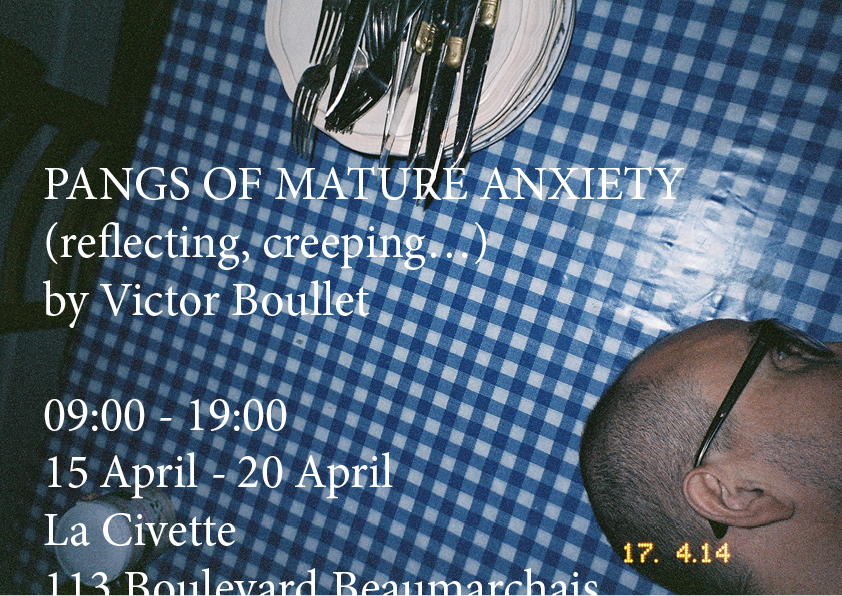
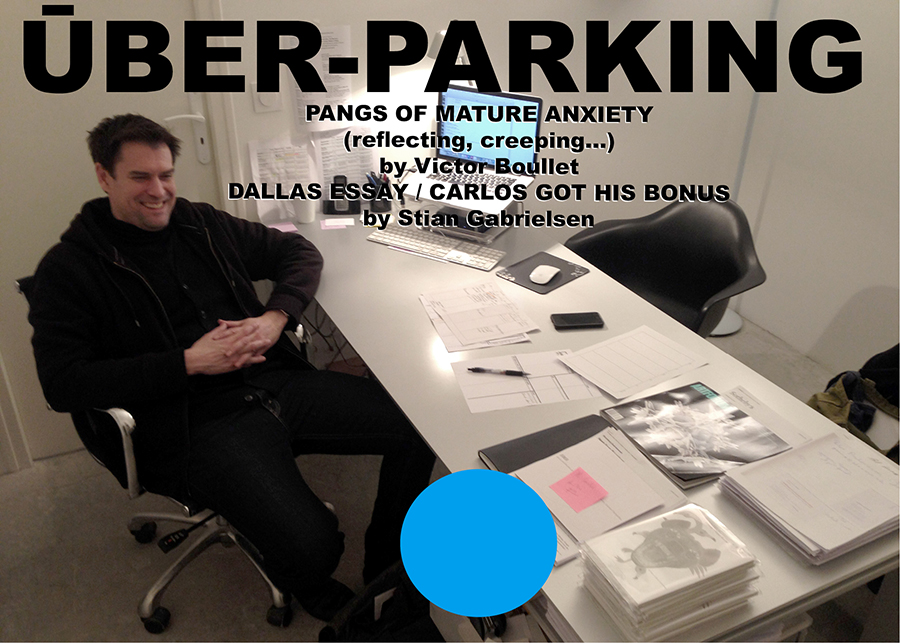
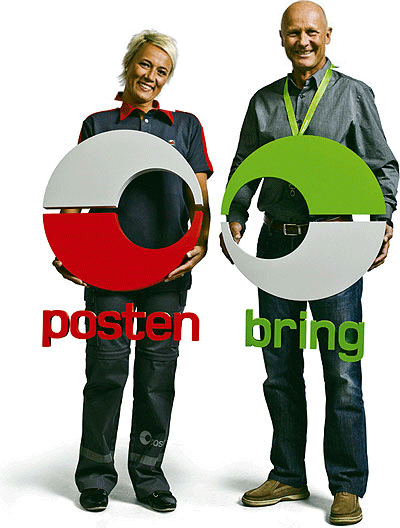

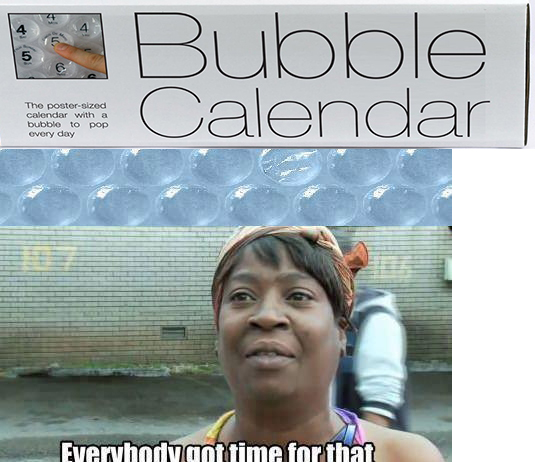
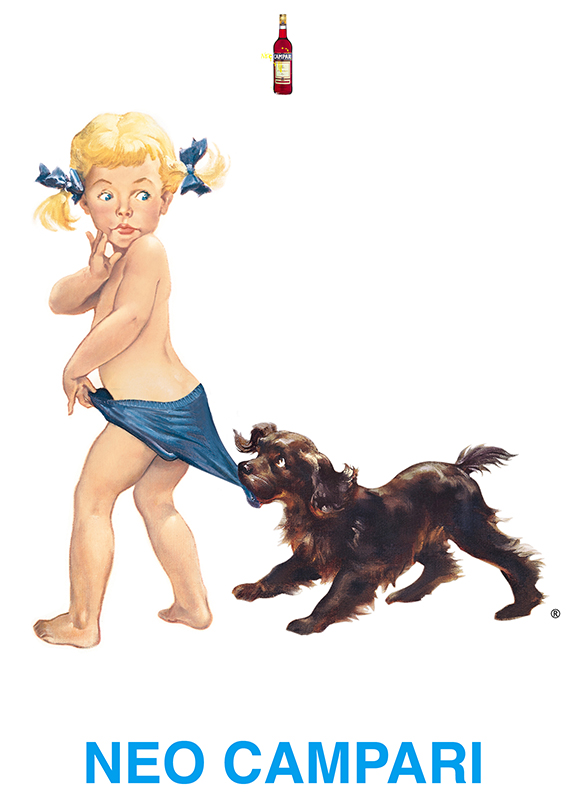
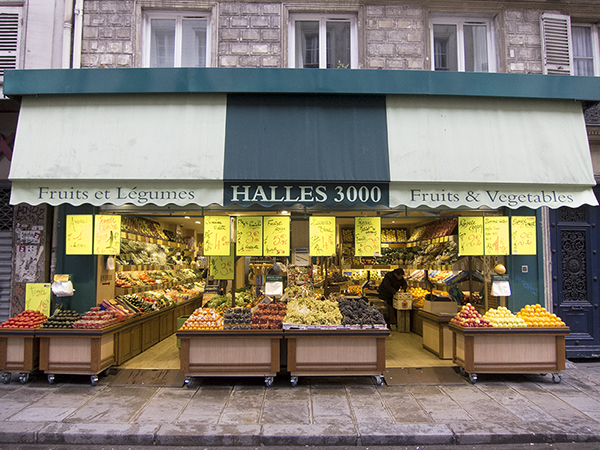
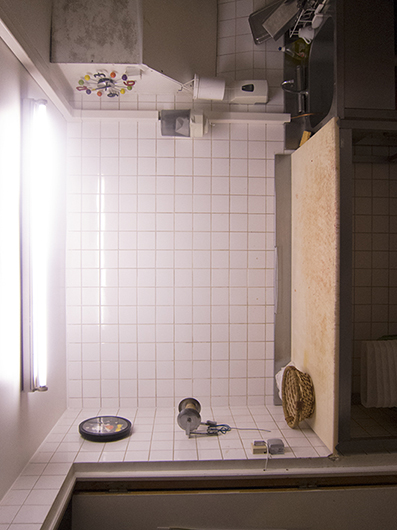
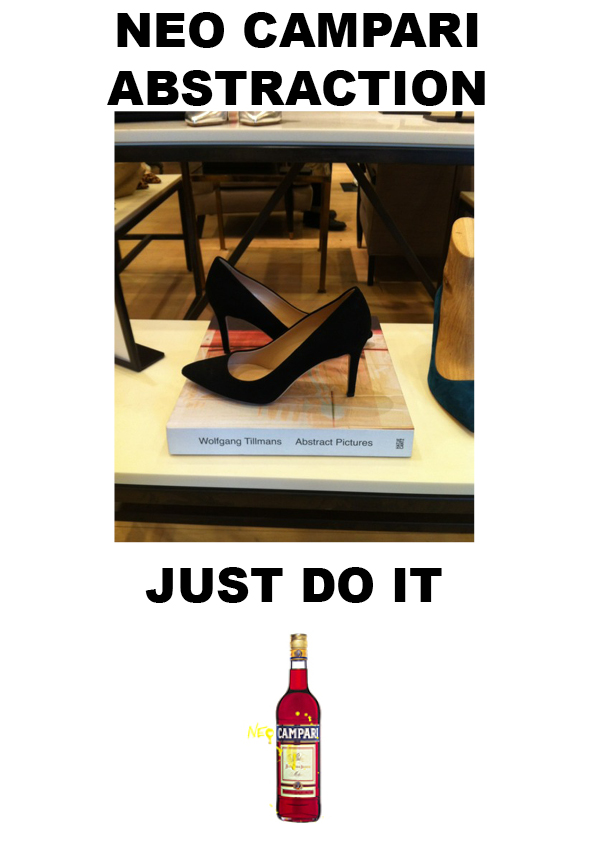
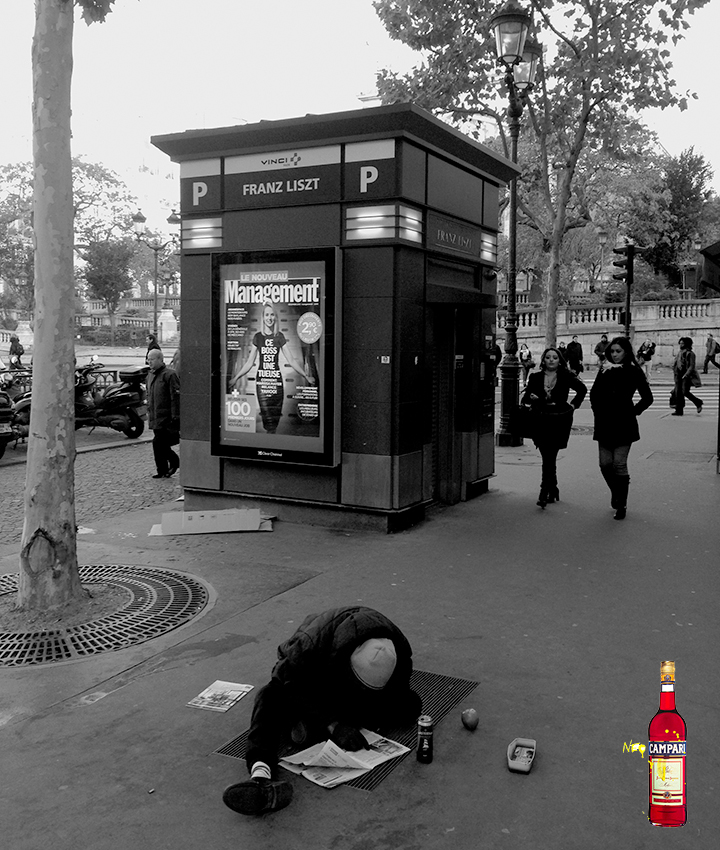
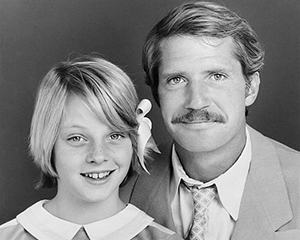
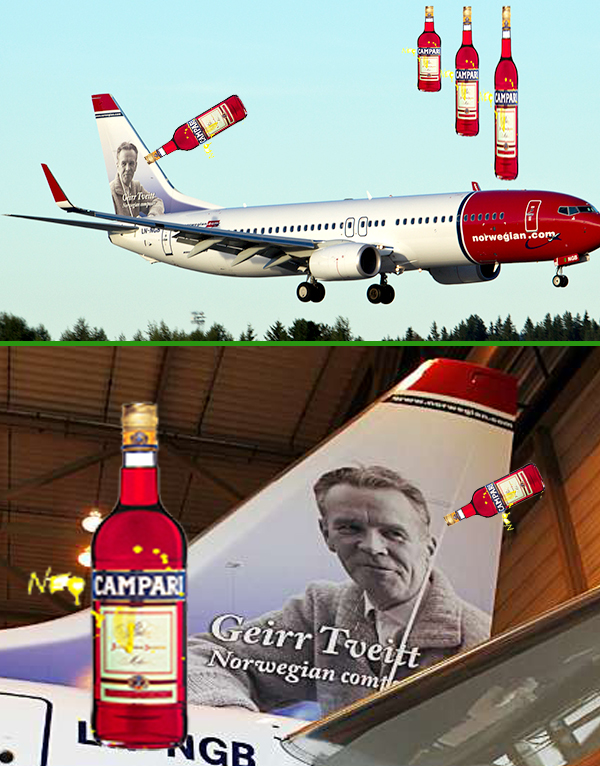
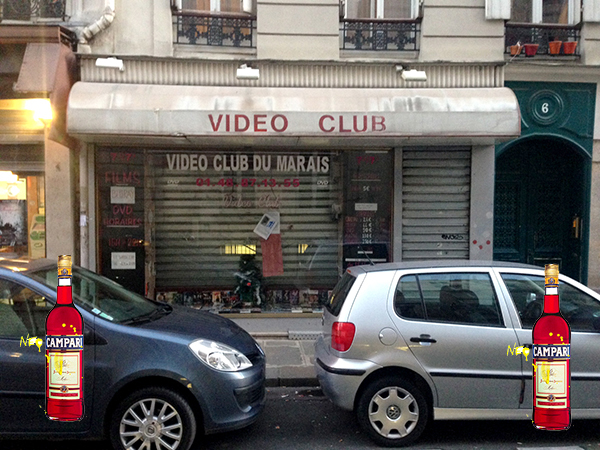 in traditional style)
in traditional style) 